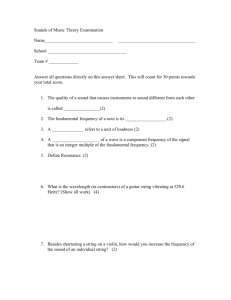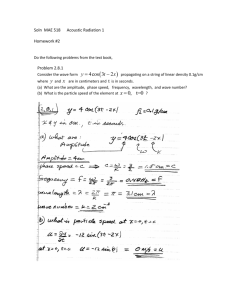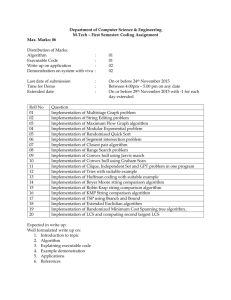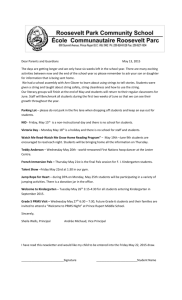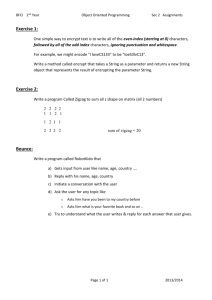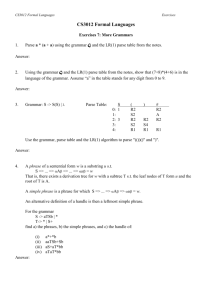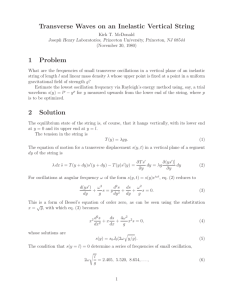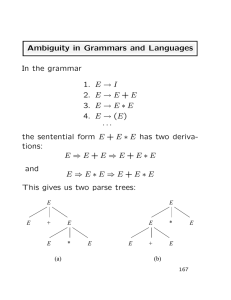Lecture # 9 - cse344compilerdesign
advertisement
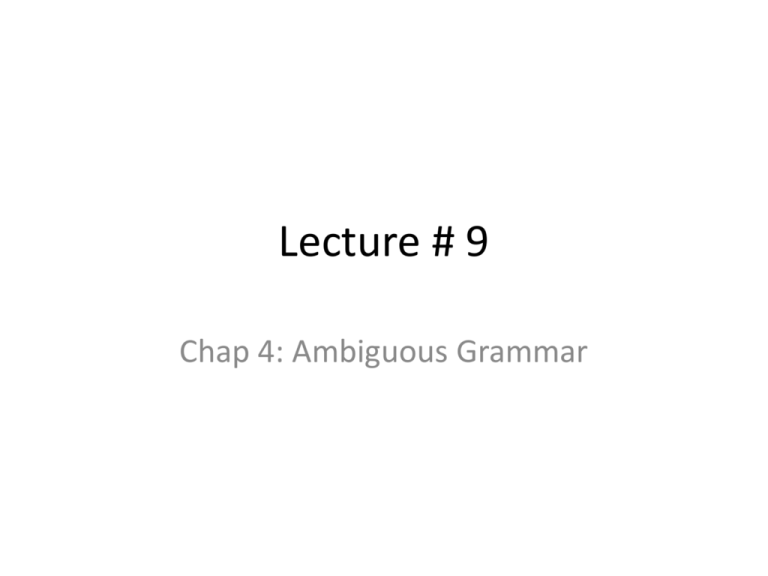
Lecture # 9
Chap 4: Ambiguous Grammar
Chomsky Hierarchy: Language
Classification
• A grammar G is said to be
– Regular if it is right linear where each production is of the
form
AwB
or
Aw
or left linear where each production is of the form
ABw
or
Aw
– Context free if each production is of the form
A
where A N and (NT)*
– Context sensitive if each production is of the form
A
where A N, ,, (NT)*, || > 0
– Unrestricted
2
Chomsky Hierarchy
L(regular) L(context free) L(context sensitive) L(unrestricted)
Where L(T) = { L(G) | G is of type T }
That is: the set of all languages
generated by grammars G of type T
Examples:
Every finite language is regular! (construct a FSA for strings in L(G))
L1 = { anbn | n 1 } is context free
L2 = { anbncn | n 1 } is context sensitive
3
Parse Trees
• The root of the tree is labeled by the start symbol
• Each leaf of the tree is labeled by a terminal (=token)
or
• Each interior node is labeled by a nonterminal
• If A X1 X2 … Xn is a production, then node A has
immediate children X1, X2, …, Xn where Xi is a
(non)terminal or ( denotes the empty string)
4
Parse Tree for the Example Grammar
Parse tree of the string 9-5+2 using grammar G
list
list
list
digit
digit
digit
9
-
5
+
2
The sequence of
leafs is called the
yield of the parse tree
5
Example of Parse Tree
• Suppose we have the following grammar
E→E+E
E→E*E
E→(E)
E→-E
E → id
Perform Left most derivation, right most derivation
and construct a parse tree for the string
id+id*id
Two possible Parse Trees using
Leftmost derivation
Parse Tree via Right most derivation
Ambiguity
• Grammar is ambiguous if more than one parse
tree is possible for some string as shown in the
previous example. If there are more than one left
most derivations or more than one right most
derivations.
• Ambiguity is not acceptable
– Unfortunately, it’s undecidable to check whether a
given CFG is ambiguous
– Some CFLs are inherently ambiguous (do not have an
unambiguous CFG)
Ambiguity (cont’d)
Consider the following context-free grammar:
G = <{string}, {+,-,0,1,2,3,4,5,6,7,8,9}, P, string>
with production P =
string string + string | string - string | 0 | 1 | … | 9
This grammar is ambiguous, because more than one parse tree
represents the string 9-5+2
10
Two Parse Trees for the same string
string
string
string
9
string
string
string
-
5
string
string
+
2
9
string
-
5
string
+
2
11
Practice
• Show that the following grammar is ambiguous:
(Find out strings and two parse trees)
1) S AB | aaB
A a | Aa
Bb
3) S aSb | SS | ε
2) S a | abSb |aAb
A bS | aAAb
How to eliminate Ambiguity?
• If ambiguity is of the form:
S α S β S | α1 |……| αn
Rewrite:
S α S β S’ | S’
S’ α1 |……| αn
• Make the following grammar unambiguous:
E E+E | E*E | (E) | id
Eliminate Left Recursion
If S S α for some α then there exists left
recursion
If there are productions:
S S α | β
Rewrite:
S β S’
S’ α S’ |
Example
• Remove Left Recursion:
S A
A S d | b

